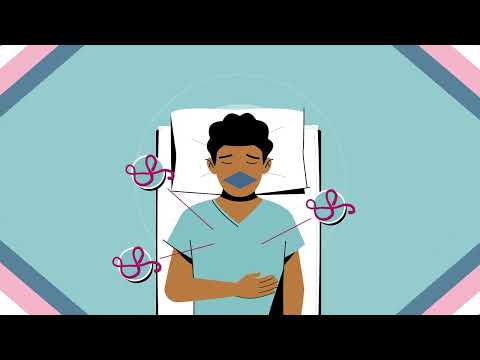Ebola virus disease
Ebola is a disease caused by the Ebola virus. Although rare, it can lead to outbreaks with high death rates. Around 65% of people infected with the Ebola virus die from the disease.
Symptoms generally appear within 2 to 21 days of infection.
In the initial phase, symptoms include:
- fever
- general malaise and weakness
- muscle and joint pains
- headache
- anorexia
- diarrhoea that sometimes contain blood and mucus
- nausea
- vomiting
After around 10 days, the disease enters a second phase with symptoms from several organ systems. These include:
- gastrointestinal issues such as vomiting, diarrhoea, loss of appetite, and stomach pain
- neurological symptoms like headaches and confusion
- vascular symptoms like redness in the eyes and throat
- skin issues like a rash
- respiratory symptoms like cough, chest pain, and difficulty breathing
- feeling completely exhausted and weak
Ebola also causes haemorrhagic symptoms including bloody diarrhoea, nosebleeds, vomiting blood, internal bleeding and bruises.
The risk of becoming infected is considered to be very low if infection prevention and control measures are followed, although the mortality rate is approximately 65% of diagnosed cases. In the disease’s final stage, patients die from a combination of multi-organ failure, and a condition called hypovolemic shock caused by severe blood loss.
The risk of Ebola in the EU/EEA is extremely low. The disease is most common in sub-Saharan Africa.
Ebola is generally found in animals. Animal to human transmission is very rare. However, if and when it does occur, human to human transmission can cause an outbreak of the disease. Most cases occur due to contact with the blood, secretions, tissues, organs or other body fluids of living or dead infected humans or animals. The virus can also be contracted through unprotected sexual contact with patients who have recovered from the disease or by touching surfaces contaminated with infectious material.
Two vaccines have been approved for use in many countries to protect against a type of Ebola virus called Zaire ebolavirus. However, there are no vaccines available against other types of Ebola virus.
To prevent the infection, it is recommended to:
- avoid habitats where ebolaviruses may be present
- avoid handling or eating bushmeat
- avoid close contact with wild animals in areas where ebolaviruses may be present





